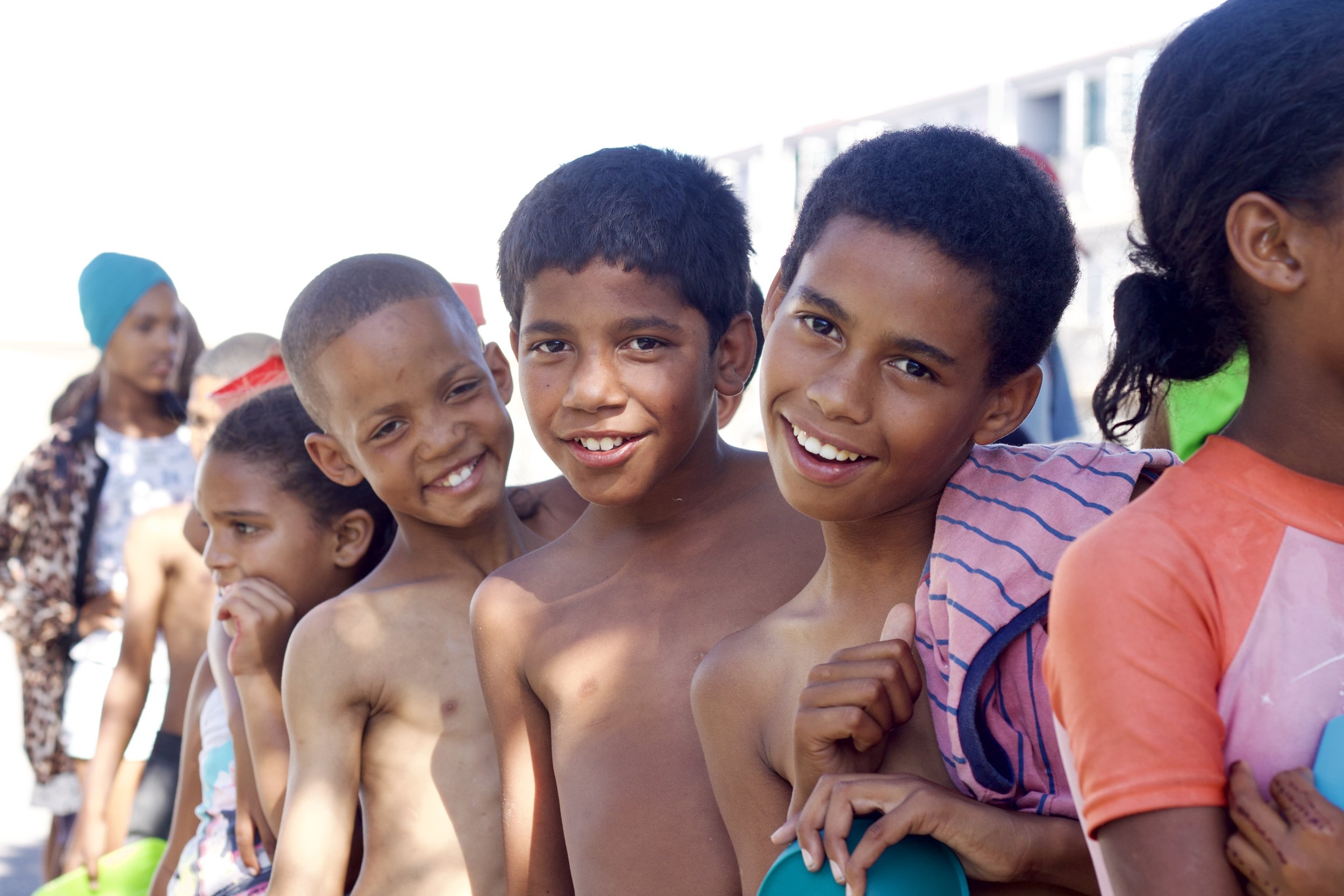
Feeding the Hungry • Urban Food Gardens • Youth Development
Feeding the Hungry
“There was a rapid response to the Covid-19 pandemic and the initial intention was to feed as many as we could. We ended up looking at the hunger situation and we realised that it’s not about Covid-19 — our communities were struggling before the coronavirus.
“We’re trying to create a difference by feeding communities, addressing the hunger, which is phenomenal.
“We feed six areas: Manenberg, Nyanga, Heideveld, Hanover Park, Delft and Gugulethu, and we have eleven kitchens in all.
“We need assistance from government and private companies to feed the poor of the poorest in our communities,” said project manager, Yumna Splinters.
‘Central Kitchen’ site for community cooking and operate ‘Test Kitchens’ to ensure non-wastage of ingredients and standardisation of recipes. There is ongoing training, development and team building. Kitchen cooks and staff live in the areas which they serve with humility.
Urban Food Gardens
Creating a sustainable source of fresh vegetables to support community cooking initiatives.
Two urban food gardens established at schools in the Manenberg and Nyanga areas. GFH have ‘rights to use land’ and long-term leases.
Food gardens provide fresh produce to boost the nutritional value of feeding-scheme cooking. Implementation was made possible by the Western Cape Province Department of Agriculture resource support, and some support from the Violence Prevention through Urban Upgrading (VPUU).
The urban farms are managed by a group of passionate and committed members and volunteers who ensure ongoing food production. In these spaces farmers exchange knowledge which is gained mostly from learning on the ground. The urban gardens additionally provide a safe and nurturing space for both children and adults to not only learn small-scale agriculture farming methods, but also provide a direct link to nature.
Youth Development Programme
We ensure our children are treated with love, kindness, respect, and encouraged to become the best version of themselves.
Many of our children are from fragmented and poverty-stricken circumstances, where drug abuse/alcoholism/gangsterism are rife. Most are reared by single mothers or grandmothers in fatherless households.
We have introduced learning the principles of tai chi to aid relaxation, calmness, and build core inner strength. Some of the activities we do include reading, games, team building, and discussion about well-being. This dialogue assists the kids to develop the confidence to articulate how they feel and what caused them pain/anger and what brought them happiness. The aim is to eradicate a culture of silence and to inculcate within our children to know their self-worth and to speak up when confronted by abuse or bullying. Our programme recruited young boys who vandalised the urban gardens. Through our processes, we have shown them to take accountability for their actions, that every wrongdoing has a consequence, and to understand that the garden provides fresh produce to feed the community.
More recently, we have a special needs trained teacher volunteer who provides psychosocial support and teaches problem-solving skills, and basic maths and literacy on Saturdays. These classes have grown to the extent that we require several teaching assistants and resources.
We value the importance of taking our children out of the communities they live in to connect them to the bigger world. Through generous funding, we could take our youth on two excursions to the Kirstenbosch Botanical Gardens in December 2021 and a barbeque and beach outing in December 2022. Future activities will include cooking classes and pickling vegetables and will draw from the culinary skills and expertise which reside in the feeding scheme. The road is long and challenging as we walk this pathway with our children to aid their human development. We need your support to significantly improve the lives of our children by strengthening the impact of the programme.
















